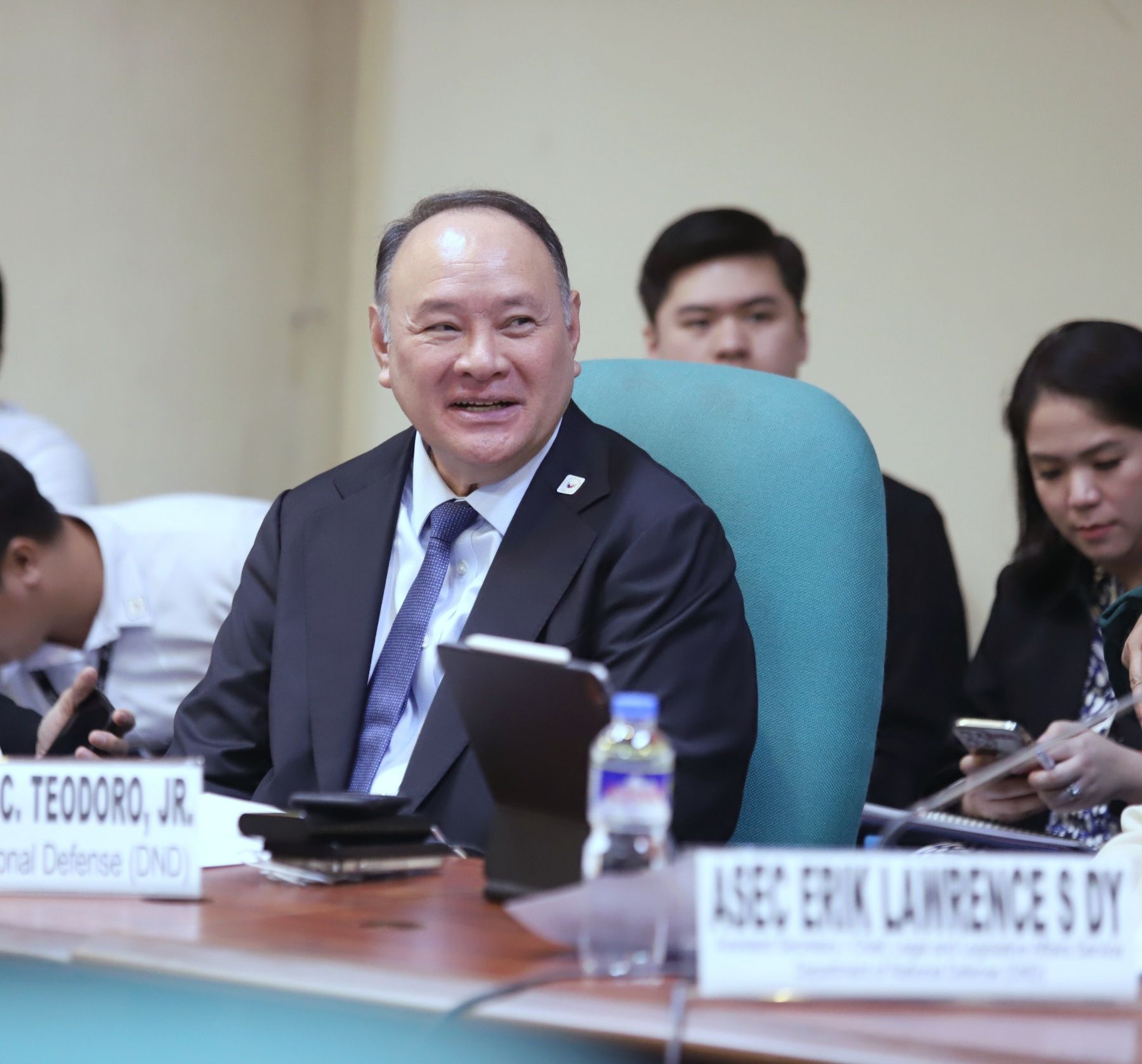DND chief: RAA to pave way for more in-depth PH-Japan military cooperation, exercises
By Dhel Nazario
Once the Reciprocal Access Agreement (RAA) between Japan and the Philippine government gets the concurrence of the Senate, it would then pave the way for joint military exercises.

This was stated by Department of National Defense (DND) Secretary Gilbert Teodoro during the hearing of the Senate Committee on Foreign Relations on Monday, November 25, 2024, led by Senator Imee Marcos on the reciprocal agreement that would facilitate cooperation between the Armed Forces of the Philippines and Self-Defense Forces of Japan.
He stated that the Philippines has only so far conducted maritime cooperative activity (MCA) with Japan with the absence of the RAA. Teodoro added that these MCAs are conducted not within the land territory of the Philippines but outside the territorial waters.
"If at all, they are conducted in areas where there is right of passage," he added.
Marcos, then, manifested how the RAA is "absolutely necessary."
Under the agreement, it is expected that the Philippines and Japan will undertake more in-depth practical military cooperation and exercises. She said RAA would deepen defense cooperation between the Philippines and Japan, and therefore, enhance the interoperability between the Armed Forces of the Philippines and the Japan Self-Defense Forces.
This is guided by the following four principles: Global and Regional Peace and Stability; Capacity-Building; Maritime Security; and External Defense, the senator stressed. Defense cooperation and military exercises, according to Marcos, aim to respond to the current security landscape, such as but not limited to: the enhancement of technical and cybersecurity needs, development of maritime domain awareness capabilities, expanding training and education exchanges, and the strengthening of Humanitarian Assistance and Disaster Relief.
“The RAA gives recognition to the promotion of international order based on the rule of law given the shared interests of the Philippines and Japan to global and regional peace and stability,” Marcos pointed out.
In a chance interview after the hearing, Marcos said that the RAA in principle, was endorsed to plenary.
"So we're trying to iron out issues about jurisdiction and the privileges to be extended to the Japanese visiting forces as well as the civilian component, so tingnan natin (so let's see)," she added.
Senate Majority Leader Francis Tolentino also expressed his full support for the Philippines-Japan RAA to facilitate military cooperation between the two countries through joint exercises and maritime security activities.
“I fully support this initiative, even as I acknowledge that it is our constitutional duty to really vet this agreement,” said Tolentino.
“I would have wanted in hindsight to have items such as support for fisheries technology be included, among others, for Filipino fisherfolk. This is considering the advanced stage of technology being employed by the Japanese fishing industry,” noted the senator, who chairs the Senate Special Committee on Philippine Maritime and Admiralty Zones.
During the hearing, most of which was held in executive session, Tolentino asked Teodoro how the RAA would enhance existing bilateral defense agreements, such as those between the Philippines and the United States and with Australia, and facilitate future agreements with other allied nations.
An advocate of multilateralism to forge regional peace, security and freedom of navigation, Tolentino is the principal author and sponsor of the Philippine Maritime Zones Act (RA 12064) and Philippine Archipelagic Sea Lanes Act (RA 12065).